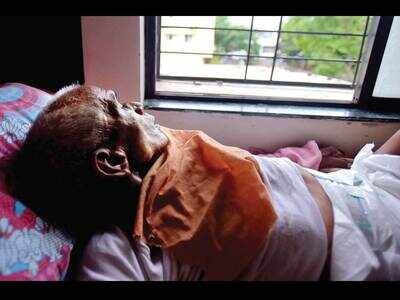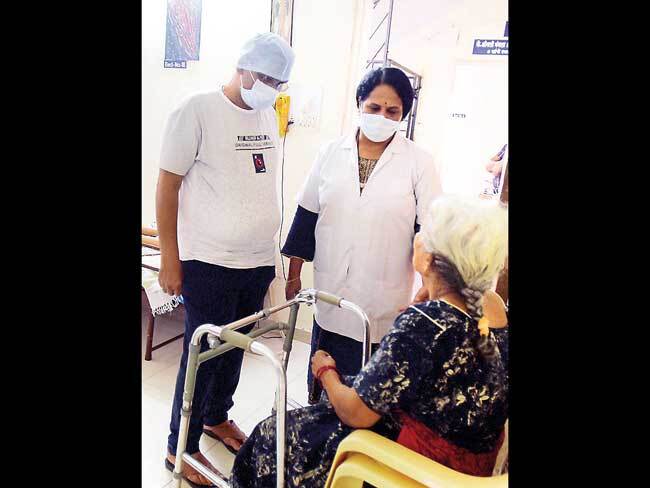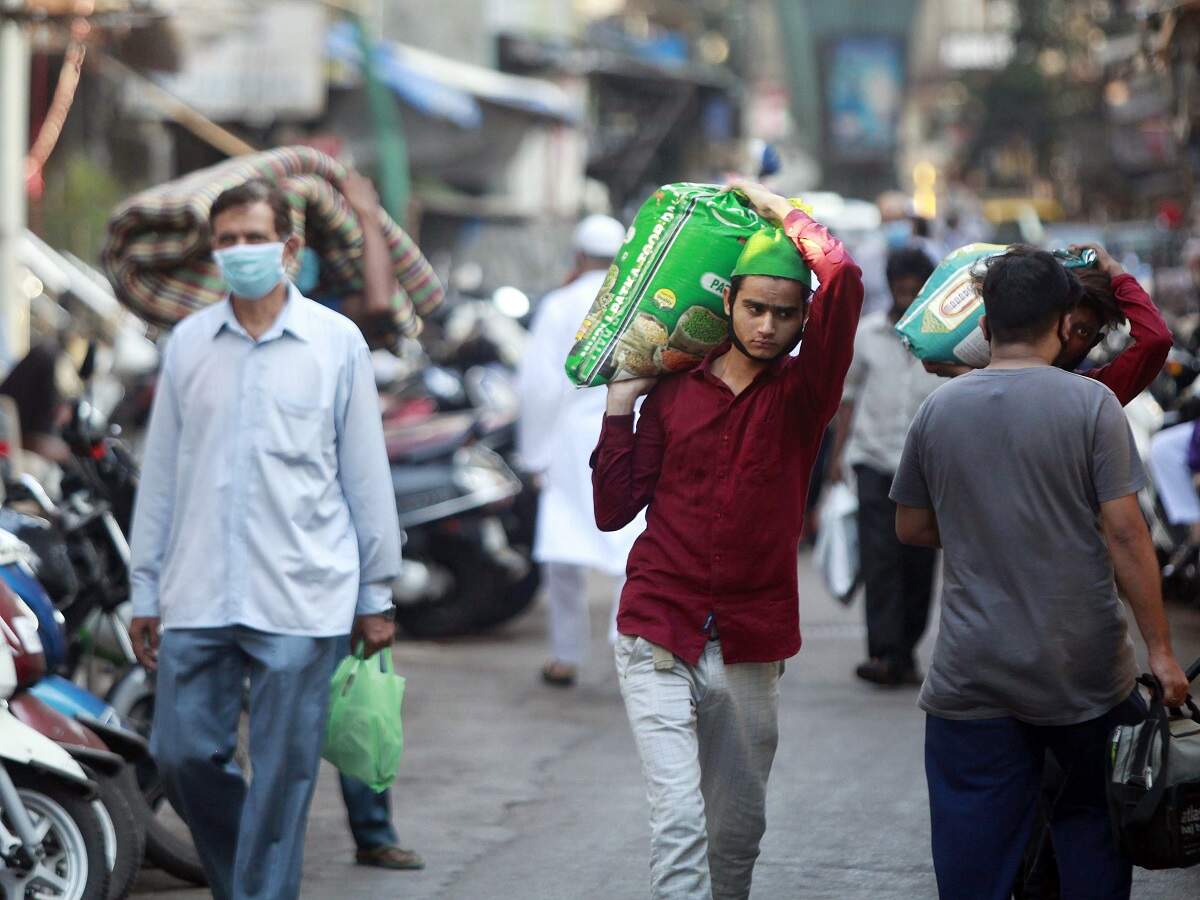Lockdown sparks anxiety for elderly in old-age homes

With many aged folks unable to grasp what the pandemic is, they feel they are abandoned. Now, facilities like Umed Care Centre (below) are making psychiatric treatment available to them
With families unable to visit for months, many of these senior citizens are now being treated for depression
At the Umed Care Centre on Katraj-Kondhwa Road, an old-age home with around 40 inhabitants, the sight of an 82-year-old inmate, frail and fully bedridden, staring out of the window continuously has become habitual. The elderly man, in the twilight of his years, stares outwards hour after hour and weeps like a child — he has been unable to meet his son for over two months now, due to theCOVID-19 lockdown . And, he is not alone in his confused sadness.
Several such senior citizens in old-age homes across the city are now facing depression for being away from their near and dear ones, and facilities say they are being treated to overcome this mental low.

pandemic , the old man believes that his son has simply abandoned him. “He does not know about the coronavirus . All he knows that his son used to come to meet him regularly, but now does not. He feels his son has cut all ties with him and keeps crying,” rued Dr Ranjana Powar, who co-runs Umed.
In another case at the same home, an 87-yearold woman is still waiting eagerly to see her cherished grandson, who used to meet her every weekend before the lockdown. She, too, is unable to stop her tears when she remembers him. Dr Rajaram Powar, who co-manages the facility with his spouse, added, “When I step into her room, she thinks it is her grandson and becomes happy. But when she realises it is someone else, her mood deteriorates rapidly. She keeps asking us when he will come to meet her.”
Many such elderly people living far from their families — and keenly vulnerable to COVID-19 — are feeling the effects of distancing more than their younger counterparts. Now, several of them are undergoing psychiatric treatment for the same. Dr Zainab Lokhandwala, a psychiatrist dealing with senior citizens in old-age homes, shared, “The lockdown has spiked anxiety levels for many. Imagine the effect on the mindset of the elderly, who have been separated from family for months together. While speaking to them, it was evident that they are helpless and depressed. Some feel we are hiding things from them as their family has not come by; others feel they have been abandoned for good.”
Further, the one-day excursions that were earlier managed for elderly inmates by caretakers of homes have been cancelled in view of the infection’s threat, adding to their anxiety.
Ravindra Marathe, a trustee of Niwara, one of the biggest such facilities in the city with some 140 senior inmates, said, “We usually plan three trips for the inhabitants who are able to move around and enjoy them. However, the lockdown has prevented this in recent weeks. Some are feeling low that they cannot step out. Often, we ask their family members to call and at least speak to them on the phone.”
In the same way, medical experts are also requesting families to regularly video call their elderly kin and keep communicating with them steadily. “Instead of asking them about their health, relatives should video call and let them participate in household chats. They can be virtually present with the family and not feel as lonely. Some senior citizens are not very tech-savvy — for them, family can also write letters. They belong to the generation that appreciated this form of communication, and might be delighted by this,” added Dr Lokhandwala.
At the Umed Care Centre on Katraj-Kondhwa Road, an old-age home with around 40 inhabitants, the sight of an 82-year-old inmate, frail and fully bedridden, staring out of the window continuously has become habitual. The elderly man, in the twilight of his years, stares outwards hour after hour and weeps like a child — he has been unable to meet his son for over two months now, due to the
Several such senior citizens in old-age homes across the city are now facing depression for being away from their near and dear ones, and facilities say they are being treated to overcome this mental low.

PIC: MAHENDRA KOLHE
In the octogenarian’s case, his son lives far off in Hingoli, and has not been able to come since March. Not quite understanding the facts of the
In another case at the same home, an 87-yearold woman is still waiting eagerly to see her cherished grandson, who used to meet her every weekend before the lockdown. She, too, is unable to stop her tears when she remembers him. Dr Rajaram Powar, who co-manages the facility with his spouse, added, “When I step into her room, she thinks it is her grandson and becomes happy. But when she realises it is someone else, her mood deteriorates rapidly. She keeps asking us when he will come to meet her.”
Many such elderly people living far from their families — and keenly vulnerable to COVID-19 — are feeling the effects of distancing more than their younger counterparts. Now, several of them are undergoing psychiatric treatment for the same. Dr Zainab Lokhandwala, a psychiatrist dealing with senior citizens in old-age homes, shared, “The lockdown has spiked anxiety levels for many. Imagine the effect on the mindset of the elderly, who have been separated from family for months together. While speaking to them, it was evident that they are helpless and depressed. Some feel we are hiding things from them as their family has not come by; others feel they have been abandoned for good.”
Further, the one-day excursions that were earlier managed for elderly inmates by caretakers of homes have been cancelled in view of the infection’s threat, adding to their anxiety.
Ravindra Marathe, a trustee of Niwara, one of the biggest such facilities in the city with some 140 senior inmates, said, “We usually plan three trips for the inhabitants who are able to move around and enjoy them. However, the lockdown has prevented this in recent weeks. Some are feeling low that they cannot step out. Often, we ask their family members to call and at least speak to them on the phone.”
In the same way, medical experts are also requesting families to regularly video call their elderly kin and keep communicating with them steadily. “Instead of asking them about their health, relatives should video call and let them participate in household chats. They can be virtually present with the family and not feel as lonely. Some senior citizens are not very tech-savvy — for them, family can also write letters. They belong to the generation that appreciated this form of communication, and might be delighted by this,” added Dr Lokhandwala.
GALLERIES View more photos












































Recent Messages ()
Please rate before posting your Review
SIGN IN WITH
Refrain from posting comments that are obscene, defamatory or inflammatory, and do not indulge in personal attacks, name calling or inciting hatred against any community. Help us delete comments that do not follow these guidelines by marking them offensive. Let's work together to keep the conversation civil.